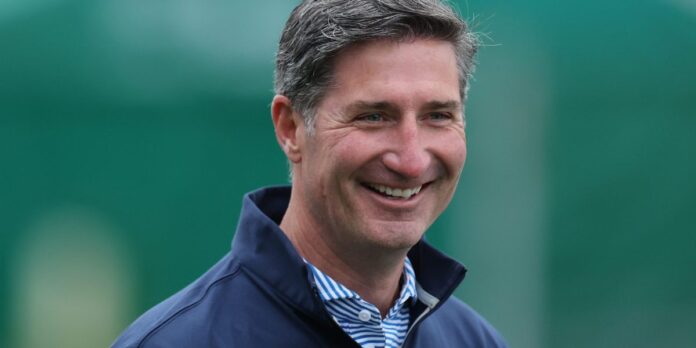Starbucks will provide a flat 2% pay bump to all salaried employees in North America this year as the coffee chain looks to minimize costs as part of CEO Brian Niccol’s turnaround efforts.
Under Niccol’s leadership, Starbucks has required some remote workers to relocate to its headquarters and tightened return-to-office policies for corporate employees. The flat 2% pay raise is a shift from the company’s previous compensation model that let managers weigh in on how much of a raise their salaried direct reports received.
The salary hike, first reported this week by Bloomberg and confirmed by Fortune, will apply to all salaried employees, including corporate employees, workers in manufacturing and distribution, and store managers. The uniform increase will not apply to baristas, who are hourly employees.
Starbucks is hoping to turn around its business with Niccol at the helm, who had previously helped improve financial results at Chipotle. The coffee chain has asked executives to limit costs to help pay for efforts to create better service, improve wait times, and make stores more inviting, according to Bloomberg.
“As we make these significant investments, we need to carefully manage all our other costs,” the company said in an internal email reviewed by The Wall Street Journal.
How Starbucks’ salary hike stacks up
The 2% pay raise lags behind the U.S. inflation rate of 2.7% and average salary increases measured by different surveys.
A recent Payscale survey found U.S. employers increased salary budgets by an average of 3.6% this year, and are expecting this average to edge down to 3.5% in 2026.
Ruth Thomas, Payscale’s chief compensation strategist, told Fortune the move to lower pay increase budgets is not surprising as economic concerns like tariffs and policy uncertainty have pushed businesses to be more conservative.
“Economic concerns have now overtaken labor competition as the primary driver of compensation decisions,” Thomas said. “Sixty-six percent of employers cite this as the reason for pulling back, up 17 percentage points from last year.”
A recent Korn Ferry survey found that in the U.S., an average of 3.6% salary increases are forecasted in 2025. This accounts for senior leadership positions, junior hourly roles and everything in between. Six percent of survey respondents were retail companies.
Yet, the survey also found that despite 88% of respondents anticipating revenue growth, one-third have already reduced salary budgets due to economic uncertainty, creating tension between talent retention and cost management.
Korn Ferry North America Workforce Reward & Benefits Leader Ron Seifert told Fortune a modest pay increase of 2% can be counteracted by above-market pay. As of mid-August 2025, the average hourly pay for a Starbucks corporate employee in the U.S. is $15.23 an hour.
As for a flat increase for all employees, Seifert said high performers may be compensated in other ways outside of their pay raise.
“We know most employers try to make sure that they’re taking care of their high performers and are mindful of the impact of the messages that they’re sending when they’re doing something different,” Seifert said. “My guess is that (the employers) also have other mechanisms for rewarding those individuals that just have not become as public.”


